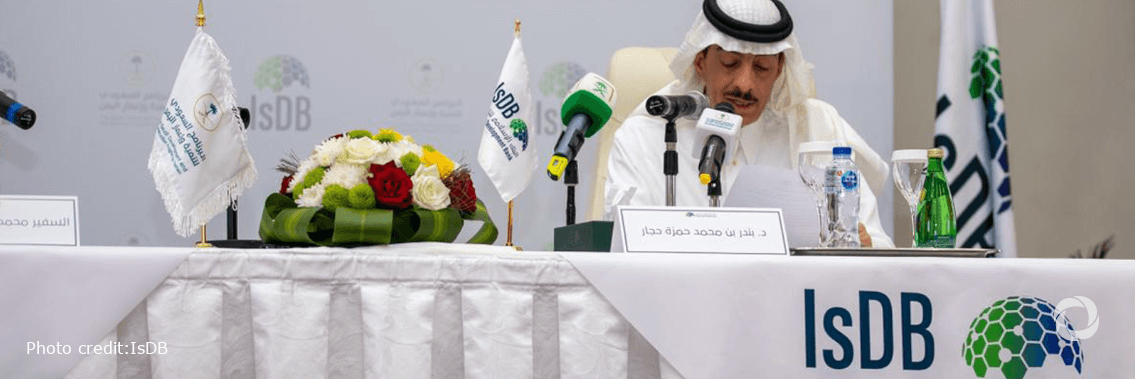President of the Islamic Development Bank (IsDB), Dr. Bandar Hajjar, and CEO of Arab Bank for Economic Development in Africa (BADEA), Dr. Sidi Ould TAH, have signed a historic agreement aimed at boosting co-financing of development projects in common member countries in Africa.
In the past ten years, IsDB and BADEA have co-financed more than a dozen projects in Ivory Coast, Guinea, Gambia, Sierra Leone, Mali, Senegal, Chad, Niger, Togo, and Mozambique. These co-financing operations were in sectors such as education, water, sanitation, urban development, agriculture, transportation, energy, health, and trade. The virtual signing ceremony took place on Tuesday 25th May 2021. It is part of IsDB’s efforts to renew its partnership with development institutions at a time when the world is facing unprecedented socio-economic challenges caused by the COVID-19 pandemic.
“The partnership we signed today, will allow us to co-create financing and investment programs that will not only address key development challenges but will also help our member countries tap into emerging global value chain opportunities to build resilience and create wealth in the post-COVID-19 world,” stated IsDB President, Dr. Bandar Hajjar.
Data indicates that unemployment and poverty rates across developing countries are rising, making it necessary to come up with measures that would significantly improve the co-financing of development projects to support developing countries to recover and build back their rural productive assets.
The agreement focuses on co-financing over the period 2021-2024. It comprises key areas of collaboration such as joint diagnostic work; procurement and capacity assessments; sharing of pipeline and annual work programs; special initiatives which support inclusive social development; science, technology, and innovation; global value chains (GVCs); private sector development; trade finance; trade policy, trade development, trade facilitation, and promotion, including under the Arab Africa Trade Bridges (AATB) Program and joint syndicated trade transactions.
Other areas covered by the agreement are Sukuk issuance; investments; investment promotion and policy formulation; insurance of investment and export credit operations; climate action and regional cooperation and integration.

